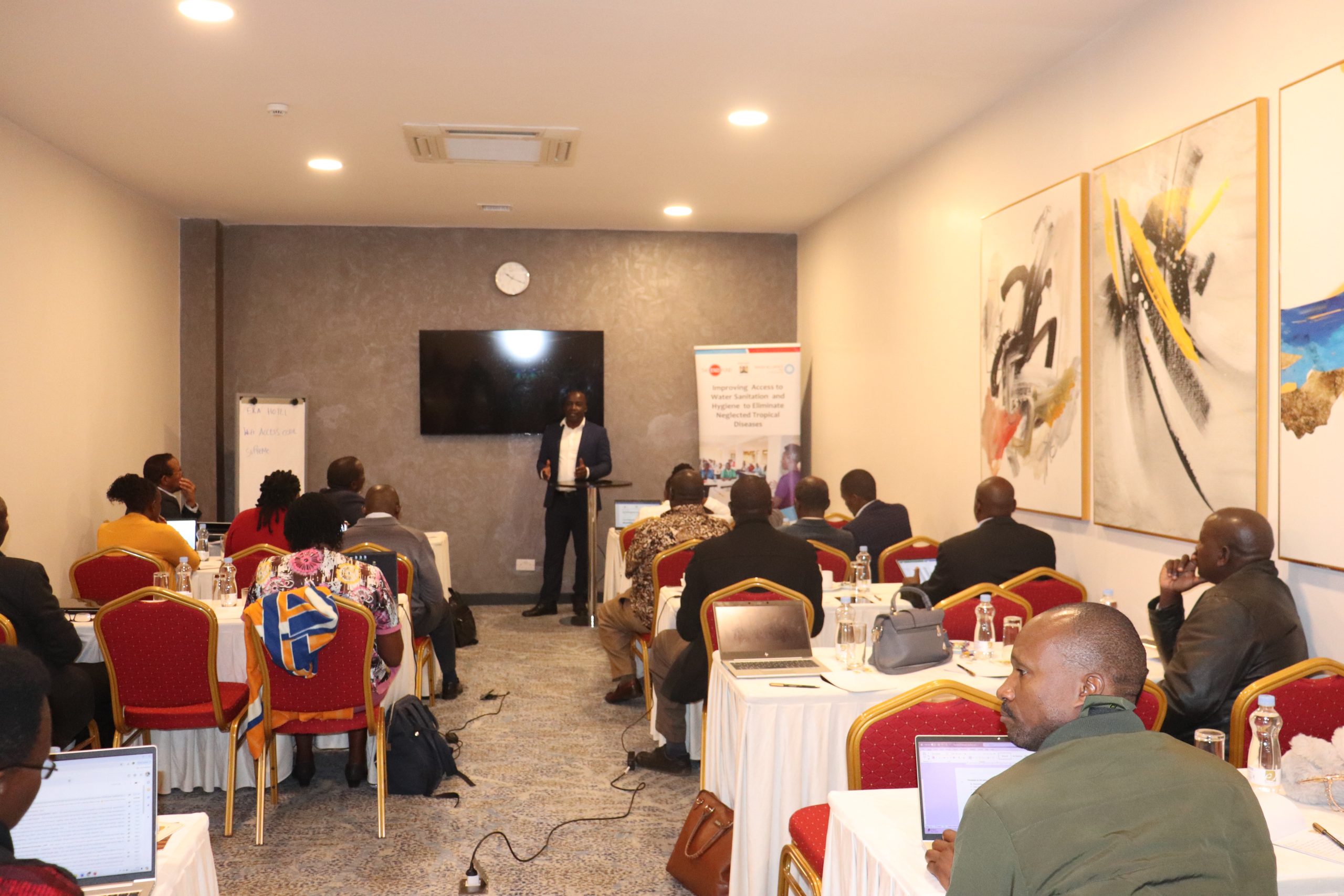On August 6, 2024, EKA Hotel in Eldoret was the focal point of a crucial meeting organized by WASH Alliance Kenya (WAK) to review and validate findings from an extensive assessment of Water, Sanitation, and Hygiene (WASH) conditions in Bungoma, Kakamega, Trans Nzoia, and Vihiga counties. This gathering included key stakeholders such as representatives from the Ministry of Health, END Fund, African Institute for Health and Development (AIHD), and local county officials.
Mr. Adam Mohammed from WAK set the stage with a detailed overview of Neglected Tropical Diseases (NTDs), addressing common misconceptions and stressing the importance of accurate data to guide effective interventions.
Mr. Titus Watitu from the Ministry of Health highlighted how essential proper sanitation and clean water access are for controlling NTDs, emphasizing their critical role in disease elimination. Dr. Caleb Wanambisi, representing county health directors, discussed the significance of peer-to-peer learning and community involvement in the fight against NTDs.
Miss Rebecca Nyankieya from END Fund shared insights into the organization’s global efforts and its partnerships with local and international entities to tackle NTDs. Similarly, Miss Clare Amuyunzu from AIHD presented their approach to social behavior change communication, showcasing how tailored messaging can engage communities effectively.
Miss Aidah Binale from WAK provided an in-depth look at the WASH assessment findings, which included data from 13,223 households, 880 schools, and 603 public spaces. The assessment offered valuable insights into water access, sanitation facilities, and hygiene practices, which will inform future interventions and resource allocation.
Feedback from participants led to constructive recommendations, including refining data indicators, considering additional factors affecting NTD prevalence, and employing comprehensive data analysis methods. The discussion highlighted the need for a holistic approach that integrates WASH conditions with other determinants of NTDs.
 County presentations revealed local progress and challenges. Bungoma and Vihiga showcased their initiatives and budget allocations, with Vihiga proposing a community awareness project involving music. Kakamega and Trans Nzoia outlined their scope and targets, addressing issues such as school infrastructure standards and the need for improved enforcement.
County presentations revealed local progress and challenges. Bungoma and Vihiga showcased their initiatives and budget allocations, with Vihiga proposing a community awareness project involving music. Kakamega and Trans Nzoia outlined their scope and targets, addressing issues such as school infrastructure standards and the need for improved enforcement.
The meeting underscored the importance of integrating WASH strategies with NTD control efforts. The collective commitment and collaborative approach of all participants are crucial for tackling public health challenges and moving towards the elimination of NTDs.







